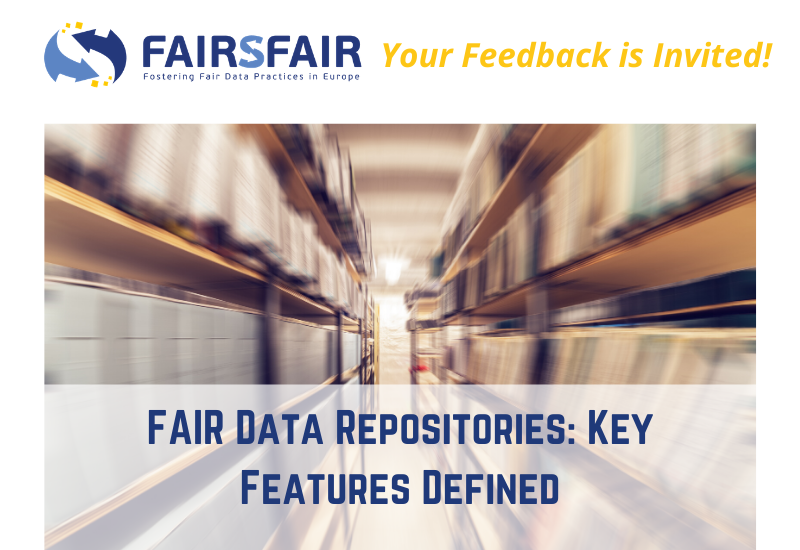FAIR Data Repositories: Key Features Defined

Input is now sought on the report D2.3 Set of FAIR data repositories features which presents the results of the first year of Task 2.3 of the FAIRsFAIR project in the form of guidelines for the “FAIRification” of repositories capable of hosting FAIR digital objects.
The guidelines originate from discussions between some 70 representatives from data infrastructures, research institutes and libraries across Europe at a workshop held on 22 October 2019 during the RDA 14 Plenary in Espoo Finland, and entitled “Building the data landscape of the future: FAIR Semantics and FAIR Repositories”.
While the FAIR principles are explicitly targeted at metadata and digital resources such as APIs, workflows, ontologies, and models, these digital objects can not be made FAIR without supporting infrastructure services that are themselves FAIR. Given that existing repositories offer a variety of graphical user interfaces and application programming interfaces (APIs) which hinder data and metadata interoperability, clear parameters need to be defined in order to harmonise repositories.
Organisational Requirements
The non-technical requirements tabled in the report relate to service level and other agreements between users and repositories or communities and data providers. They include amongst others:
- Each repository to have a PID
- Repositories to be listed in registries of repositories
- Explicit data deletion policy to detail roles and responsibilities
- Technical support to be provided for predefined file formats
- Community standards and ontologies from public registries to be reused
Technical Requirements
The report provides a comprehensive list of technical features aimed at improving interoperability and grouped by category. Categories dealt with include:
- Metadata for digital objects
- Machine-readable and interpretable metadata about repository itself
- PID policies
- Data object and file requirements
Additional technical requirements are that repositories should acquire a machine-readable license and provide a search interface that enables findability.
Your Feedback Invited
With a view to delivering detailed specifications for implementing the recommendations provided in the report, the authors now required feedback and comments from the scientific community. To access and annotate the report click here.
This report is also the topic of a webinar to be hosted by the authors on 8 April. To learn more and register, click here.
